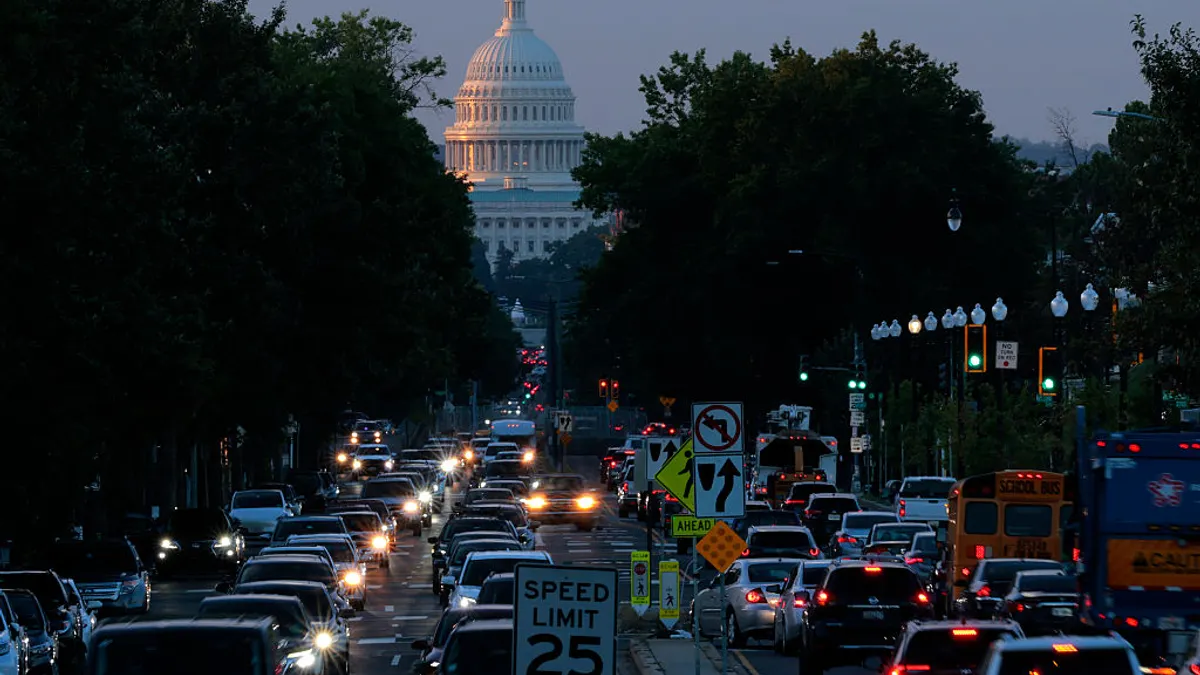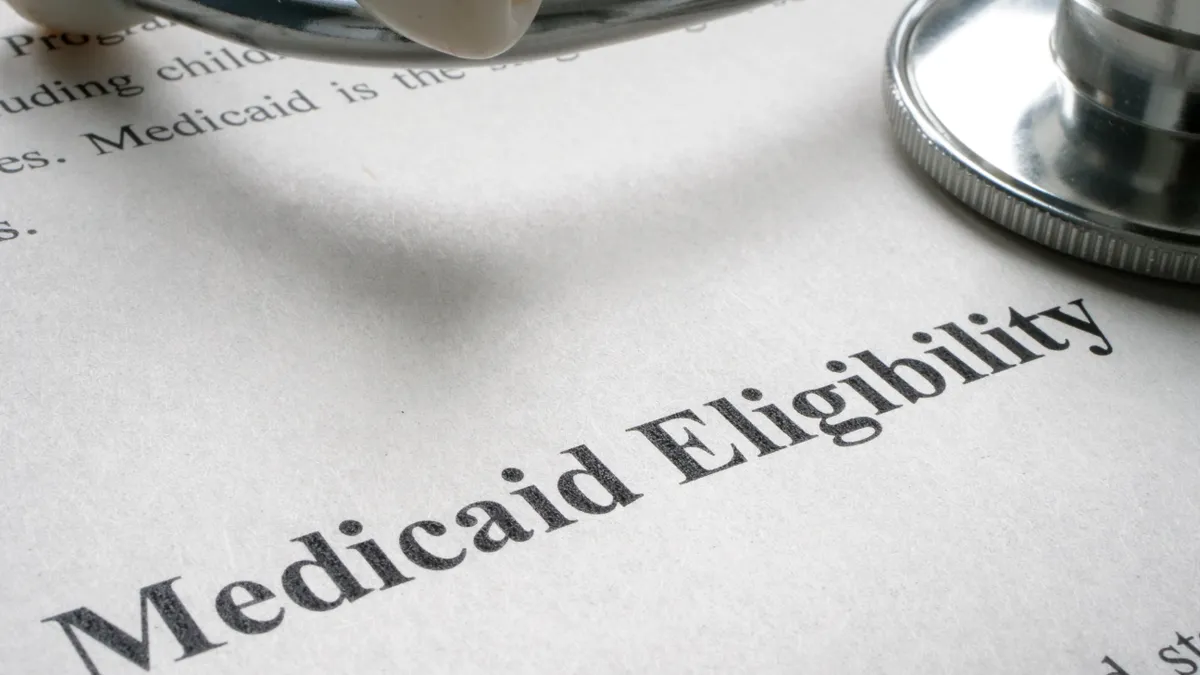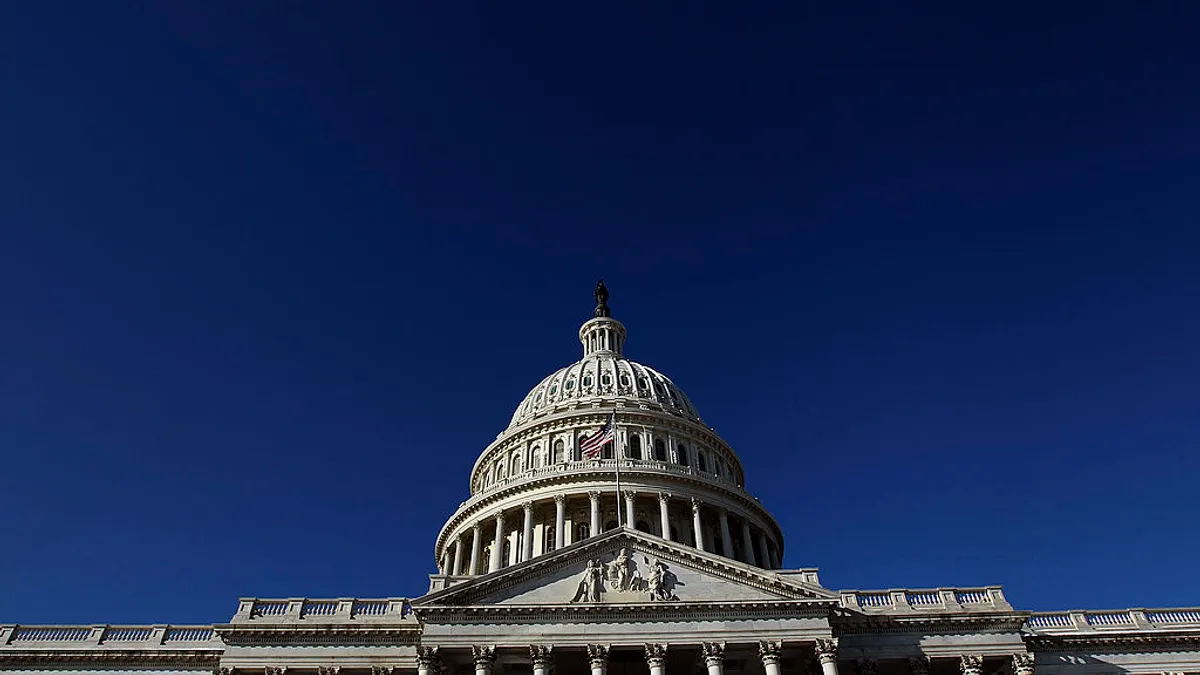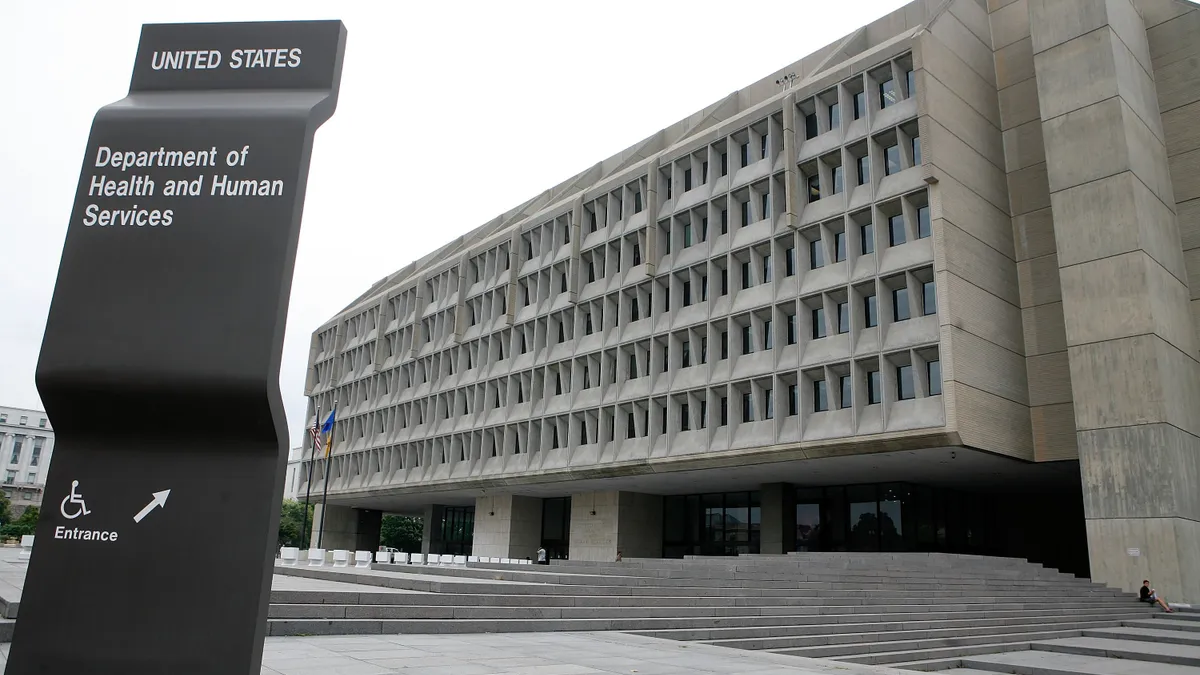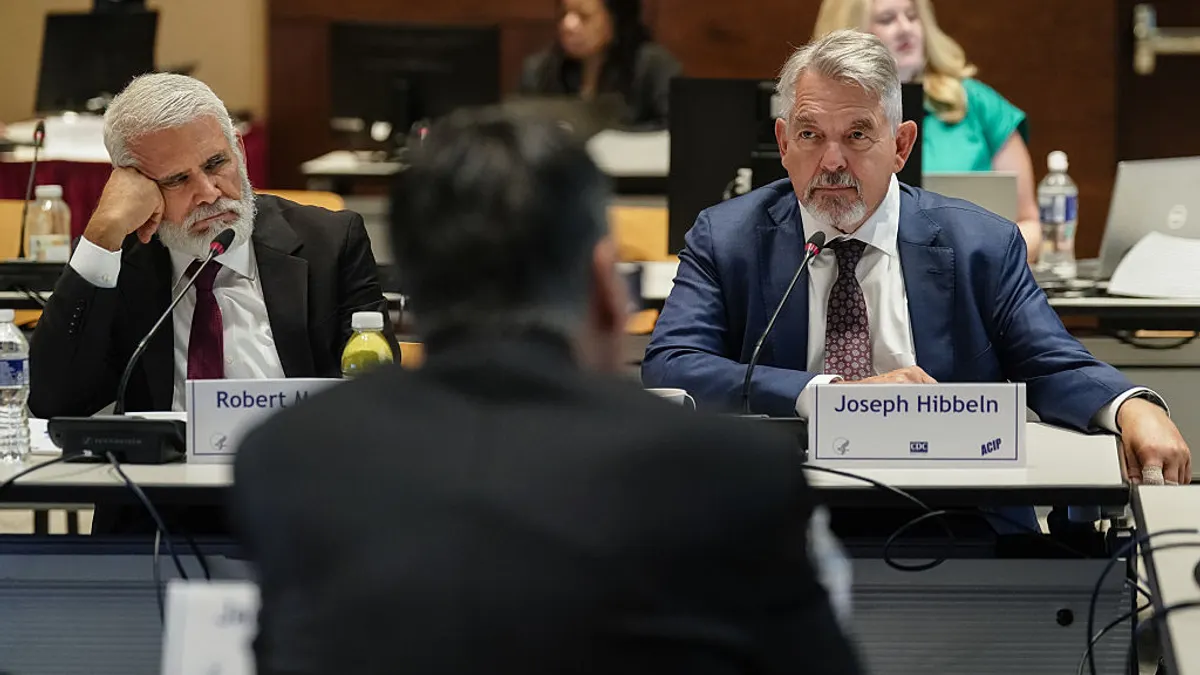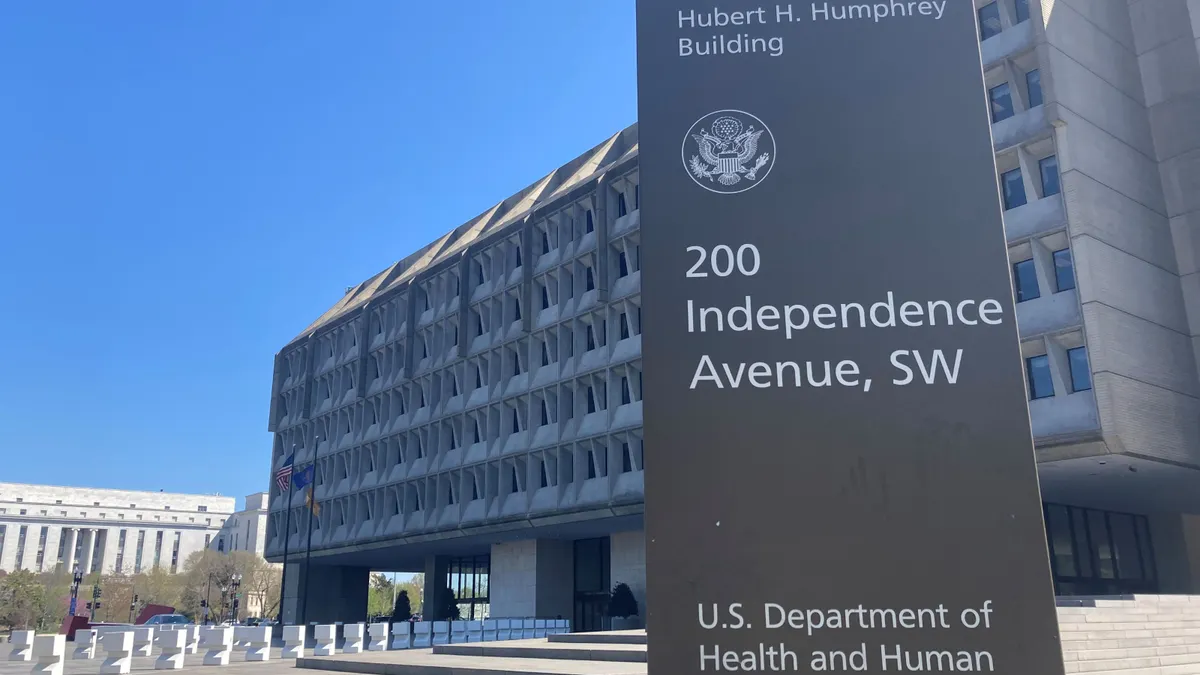The House passed Republicans’ “big, beautiful bill” on Thursday in a razor-thin 215-214 vote, sending the legislation — which includes the most drastic overhaul to Medicaid since the program was founded — to the Senate for review.
It’s a major victory for Republicans. The multi-trillion dollar package was at risk of collapse heading into the vote, given tension in the party between hardliners calling for steeper cuts and moderates concerned about shrinking healthcare and social welfare programs.
However, House Speaker Mike Johnson, R-La. managed to corral a majority of his members into passage after negotiating a number of last-minute tweaks to the megabill, which enacts a number of President Donald Trump’s tax and policy priorities.
Still, it just barely squeaked through, with all Democrats present voting no.
The absence of Democrat support for the legislation was unsurprising, given the party has criticized the package as a handout to the wealthiest Americans at the expense of the nation’s poor. Benefits from the legislation would flow to the top 10th of American households, while cutting resources for the lowest-earning citizens, according to the Congressional Budget Office.
Republican Reps. Thomas Massie of Kentucky and Warren Davidson of Ohio also voted no, while Andy Harris of Maryland voted present. Two other Republicans, Reps. Andrew Garbarino of New York and David Schweikert of Arizona, missed the vote.
The legislation extends tax cuts from Trump’s first term, cuts food stamps and education programs, eliminates clean energy initiatives from the Biden administration and provides more funding for immigration enforcement.
It also includes a number of healthcare provisions. Notably, it cuts roughly $700 billion from Medicaid over a decade, largely through creating reporting mandates requiring beneficiaries in the safety-net insurance program to log work, education or volunteering hours with their state.
The work requirements would begin at the end of 2026. Originally, Republicans wanted the requirements to kick in in at the start of 2029, but agreed to move the start date sooner to appease conservatives who wanted more immediate cuts.
Along with other provisions affecting enrollment and eligibility, the bill would lead to roughly 7.6 million people losing Medicaid, according to estimates from the nonpartisan Congressional Budget Office.
Currently, Medicaid covers almost 80 million Americans along with its sister program for children.
The CBO reviewed the first iteration of the bill, prior to the GOP’s new amendments. Coverage losses would likely be higher under the newer version, given the earlier adoption of work requirements.
Another 4 million people would lose Affordable Care Act coverage from provisions restricting enrollment in the marketplace plans set up by the Obama-era law, according to the CBO’s report.
Overall, health insurance losses from the bill would reverse about half of the U.S.’ coverage gains since the passage of the ACA in 2010, Brookings Institution fellows wrote in an op-ed in the Washington Post this week.
Some moderate Republicans were worried about the heavy Medicaid cuts in the bill before its passage, concerned about the impact on voters in their districts — especially as a number of patient advocacy groups and community organizations took to the Hill this week to protest the bill.
On the other side, GOP hardliners were calling for steeper and earlier cuts to offset the bill’s costs. As it currently stands, the legislation is projected to add roughly $4 trillion to the U.S. debt.
That created a tightrope for Johnson, who spent the days before the House vote negotiating compromises to prevent holdouts on the bill from voting no. Trump also took to Congress this week to stump for the bill, attending a House GOP meeting on Tuesday and urging lawmakers to support it.
Trump also told Republicans “don’t f--- around with Medicaid,” according to reports — a warning to preserve the safety-net program that’s directly opposed to the policies in the bill itself.
Republicans say the cuts are necessary to combat fraud, waste and abuse in federal programs, including Medicaid, and that the bill preserves benefits for the neediest Americans.
“Today, the House has passed generational, nation-shaping legislation that reduces spending, permanently lowers taxes for families and job creators, secures the border, unleashes American energy dominance, restores peace through strength, and makes government work more efficiently and effectively for all Americans,” Johnson said in a statement Thursday.
But restricting Medicaid will have a direct impact on Americans, especially some of the nation’s neediest people, according to Democrats, patient advocates and Medicaid experts.
Health insurance like Medicaid is directly linked to health outcomes. For example, people with Medicaid coverage are less likely to die, including from diseases like diabetes and cancer, than uninsured individuals, according to research.
Shrinking Medicaid will also stress providers, many of which already struggle with what they say are unsustainably low rates in the program.
That could force clinics and hospitals, especially those in rural or low-income areas that serve a greater portion of Medicaid patients, to scale back services or potentially close altogether, according to provider groups.
That’s especially as states don’t have room in their budgets to make up for the lack of federal funds.
“We have less workers and it’ll be quadrupling their workload, with no additional financial assistance. It is setting us up for an actual train wreck,” said Erin Gabriel, the government affairs representative of the advocacy group Pennsylvania Health Access Network, during a call with reporters on Tuesday.
Hospital groups decried the bill’s passage and urged lawmakers to reverse course on shrinking Medicaid.
The bill “will hand tie states’ abilities to fund their Medicaid programs, cause millions of Americans to lose coverage, and be a death knell to critical hospital services and entire communities’ access to care,” said Chip Kahn, the president and CEO of the Federation of American Hospitals, in a statement. “There is still time to take heed and turn this ship.”
“The sheer magnitude of the level of reductions to the Medicaid program alone will impact all patients, not just Medicaid beneficiaries, in every community across the nation,” said Rick Pollack, the president and CEO of the American Hospital Association.
Democrats also decried the breakneck speed at which Republicans advanced the more than 1,000-page bill. Republicans are moving the bill through a process called reconciliation, which allows one party to push partisan legislation through both chambers of Congress while avoiding a fillibuster in the Senate.
“House Republicans promised to lower costs. Instead, Donald Trump’s One Big Ugly Bill will mean millions of families will pay higher premiums, copays and deductibles. Hospitals will close, nursing homes will shut down and communities will suffer,” Minority Leader Hakeem Jeffries said in a statement following the bill’s passage. “The GOP Tax Scam is deeply unpopular, which is why Republicans made every effort to advance it during the dead of night.”
The legislation now heads to the Senate, where Republican senators are expected to try to edit some of its proposals. GOP leadership is hoping to get the bill to Trump’s desk by July 4.
However, the legislation faces similar challenges in the Senate as it did in the House, given some GOP senators want deeper spending cuts while others are concerned about slashing Medicaid, including through eliminating financing mechanisms that allow states to draw down higher levels of federal Medicaid funds.








